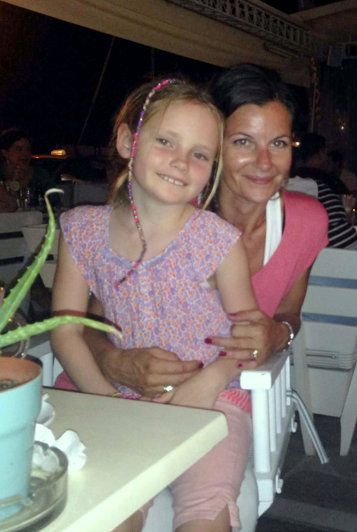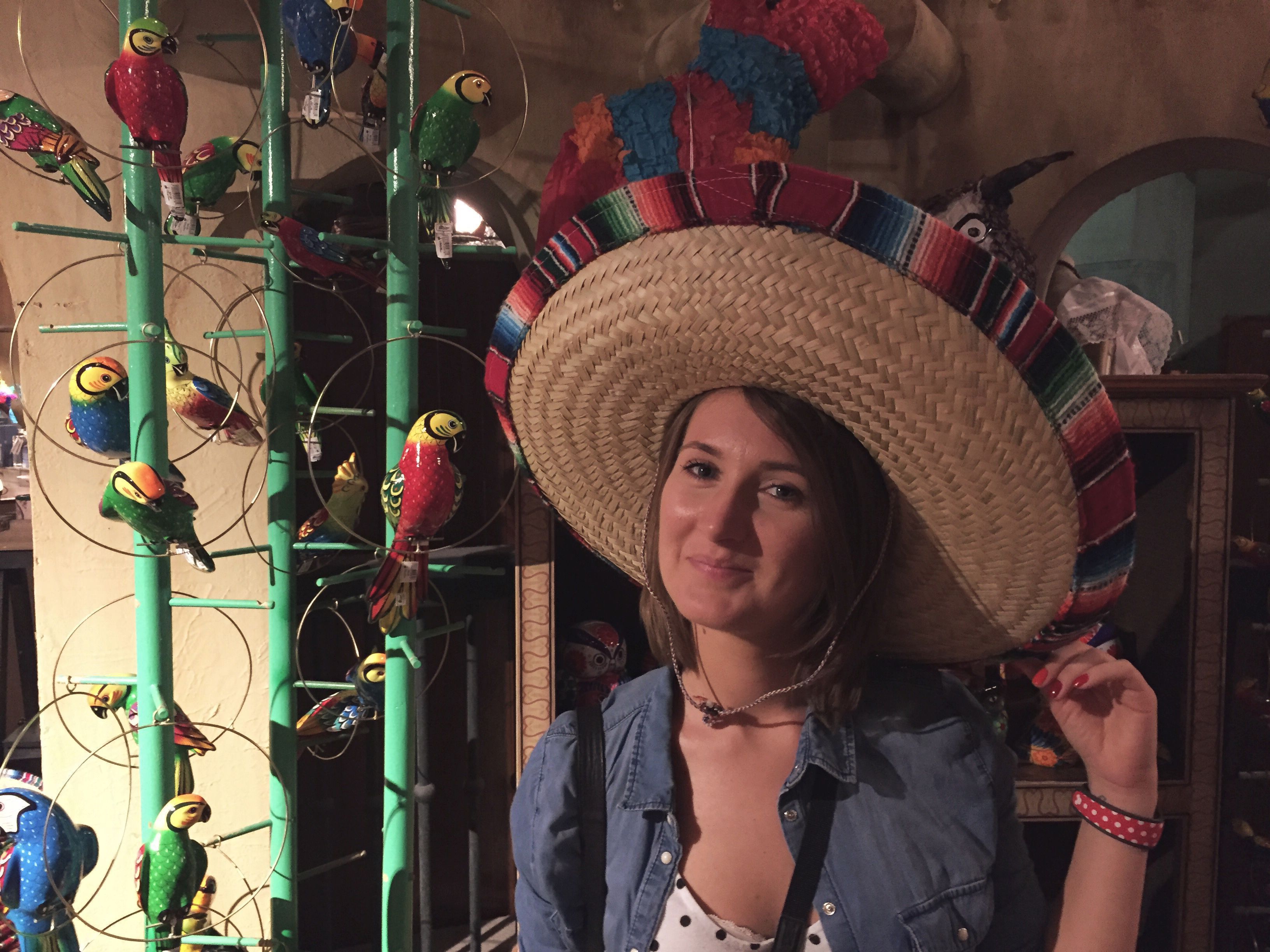Junior Language Challenge finalist Grace aiming for the top in 2016
Jenny’s daughter Grace was a finalist in the 2015 Junior Language Challenge – and one of the stars of our video from the day! In today’s blog post, Jenny tells us about her experience of the competition as a mum, and what taking part in the JLC has meant to Grace.
 The JLC has become a very big part of our life since March 2014, when my daughter first entered the challenge.
The JLC has become a very big part of our life since March 2014, when my daughter first entered the challenge.
I was amazed by the commitment she put into the challenge, especially as she was only 7 at the time. She practised daily with her Daddy and it became a really fun part of the day. Even though she was ‘learning’, she didn’t/doesn’t class it in the same way as homework.
Grace got through to the semi-finals in Cambridge. She was so very nervous and had no idea what to expect (similarly to myself!). She completed the first round and got through to the final 12. It was this round I sat in to watch, oh my goodness… It was nerve wrecking watching the scores go up and down. Unfortunately Grace didn’t make it through to the final that year. She wasn’t too downbeat about it and declared she would do better next time! I wasn’t sure my nerves could stand another one!
March 2015 came and Grace started the challenge again. Proudly, she got through to the semi-finals and this time she came top in the final 12, so she was through to the Grand Final at Olympia! To us, this was an amazing achievement and we were so proud.
On the day she made it through to the last round but only came 10th. Although, only 10th at the age of 8 from thousands of entrants is fairly epic for us all. The JLC team were fabulous throughout the trials, very reassuring and putting the children at ease.
Grace is determined to make the top three in the finals this autumn!
I cannot speak highly enough of the JLC and would thoroughly recommend all parents let their child experience this modern way of learning a language. It is a fun and challenging game with only positive results. So, as we commence the new challenge with Romanian, Grace reiterates her desire to make the Grand Final! Fingers crossed!
Good luck to Grace and everyone who takes part in this year’s JLC, which will launch on March 11th and is open to children aged 10 and under across the UK. Entry costs just £5 and is donated to our charity onebillion. The first of our three languages this year will be Romanian!
You can find out more about Junior Language Challenge 2016 on our official page: juniorlanguagechallenge.com. Or email jlc@eurotalk.com if you have any questions.
Learning languages helps me help other people
Darren took part in our uTalk Challenge in January this year, choosing Polish, and he’s continued in February with Czech. Here’s his language learning story…
My name is Darren, I’m from Bath, England, and my language journey really began about 10 years ago.
I had studied French and German at school but I didn’t really enjoy them. I didn’t realise how useful languages could be until a friend asked me to help her learn some Latin for her nursing exam. She gave me the list of things she needed to learn with a look of sheer terror on her face and I told her ways to easily remember each word. You could see the panic in her eyes fade as she realised she could remember everything after just a couple of hours.

Soon after, I started working with a lot of Polish girls. It was quite difficult because only one or two of them could speak English, so I decided to try to learn enough Polish to be able to say “Good morning”, “You need to do this…”, “Would you like a coffee?” and other essential phrases. My first few attempts at communication were hilarious! My pronunciation was terrible and led to smiles and giggles, but they were all really impressed that I even tried and my blushes soon turned to grins of pride. I started doing the same when other new people arrived and was soon spouting phrases in Polish, Hungarian, Latvian, Romanian, and Greek. The look of happy surprise as a nervous new employee is greeted in his or her own tongue is itself worth the effort of learning.
I try to study a different language every day of the week for about two hours. Now I have friends from all over the world and teach English as a Second Language so I am lucky enough to be able to practise different languages every day. I’ve lost count of the number of times I have been able to help someone in the street when they have asked someone in broken English if they know where some place is, or in a shop when they don’t understand what is being said to them by a cashier. One time I was even asked to help translate for a friend who had been attacked and needed to talk to the police. Languages are now very important in my life and are my biggest passion.
One last thing: my original attempts at speaking Polish eventually led to me marrying the girl of my dreams. Just another reason to start your own language adventure!
How to keep New Year’s resolutions
We’re well settled into the new year and we’re all full of hopes and dreams for the next 12 months – learning a new language, getting fit, changing our job, travelling more. Most likely in the first week of the year you were super pumped, ready to drop anything to stick to your main goal(s).
By the time the second week came however, you kind of settled in, relaxed the rules a bit and got back to some of your old habits. When January’s over, your goal will be completely forgotten like it was never there and you’re going to be thinking ‘how silly of me to think that I could learn Spanish’.
That can be one of the ways the future looks. Let’s take a different turn. Lets push through the phase when we want to give up and see what happens. The other road is familiar but wouldn’t it be nice to see what else can happen? What if you did learn Spanish this year? You could read books in Spanish, and you could talk to other Spanish speakers, and on your next holiday in Spain you could strike up a conversation with a stranger and end up making new friends.
Studies have shown that the human brain tends to value immediate rewards more than future rewards. When you set a goal or a resolution you are in fact making plans for your future self and it ‘s easy to imagine how your life can look. But, when the time comes that you actively pursue that goal most people choose immediate gratification and opt to do what they feel like in the moment.
Now that we understand how our mind works, it’s time to find ways to stop this from happening.
- Start slowly and build a ritual. Set yourself to practice for half an hour a day – that’s not too much to ask right? Offer yourself a reward after – if you’re learning a language with uTalk, the reward comes in the form of earning points and we all like to build up to a nice score, right?
- Put aside some of your other tasks. Obviously not work or eating but if you usually browse the Internet while commuting why not replace that with your main goal?
- Keep your eyes on the prize – never lose sight of your motivation. Look at pictures of beautiful Spanish landscapes and imagine yourself having a chat with the locals, or listen to Spanish songs and try to understand the lyrics.
I hope this helps you push through the temptation of giving up and will ultimately get you to your goal. And don’t worry about making mistakes; the only person who loses is the one that gives up, so no matter how slow you are going, it’s still better than if you weren’t doing anything.
And if your goal is to learn a language (or twelve…), there’s still time to join the uTalk Challenge!
Ioana
Is it possible to forget your native language?
I recently came back from a week long vacation in my home country, Romania. While there, I noticed something very interesting that I’m sure you’ll find as fascinating as I did.
I’ve been living in London for more than two years now and on a daily basis I only speak English. Well, I am currently learning my boyfriend’s language, Spanish, but that’s not really relevant for now. I do text and chat to my Romanian friends and my parents, and we sometimes speak on the phone, but 90% of the time I speak and think in English. Except when I have to count something in my head, that’s still Romanian – happens to you too?
 So anyway, when I went back I obviously sat and talked and went out with friends and family, and so I noticed that in longer conversation I was having trouble using complex words and expressions and that I was often translating my thoughts from English to Romanian. In that way, I found myself asking in a café if I can have some brown sugar – but in Romanian the expression is actually ‘can you give me some brown sugar’, so I got some weird looks and then realised how silly it sounded.
So anyway, when I went back I obviously sat and talked and went out with friends and family, and so I noticed that in longer conversation I was having trouble using complex words and expressions and that I was often translating my thoughts from English to Romanian. In that way, I found myself asking in a café if I can have some brown sugar – but in Romanian the expression is actually ‘can you give me some brown sugar’, so I got some weird looks and then realised how silly it sounded.
The way I see it is that the brain seems to keep the information and skills that you use on a daily basis ‘at the surface’ and puts the rest in a back drawer. So the longer the time is that you do not think about something, the further back it goes. And so we forget the surnames of the people we went to school with and whose names we were able to say alphabetically by heart at the time, we forget about that awful blind date we went on a few years ago, we forget what a certain place that we used to see every day looks like.
Now I understand a bit better why daily practice makes such a difference when learning something new, be it a language, a software program or playing a new instrument. Keeping the knowledge fresh in your brain allows easier access to it and so you’ll find it extremely handy when faced with the opportunity of using it.
If you are determined to learn a new language, even just 15-20 minutes a day can make a huge difference, especially if you’ve found a fun way to learn. Our uTalk app helps you practise your new language, it’s fun and it trains your memory to remember what it learned. And it has 128 languages to choose from!
Do you find you’re forgetting your native language? I hope I’m not the only one!
Ioana




